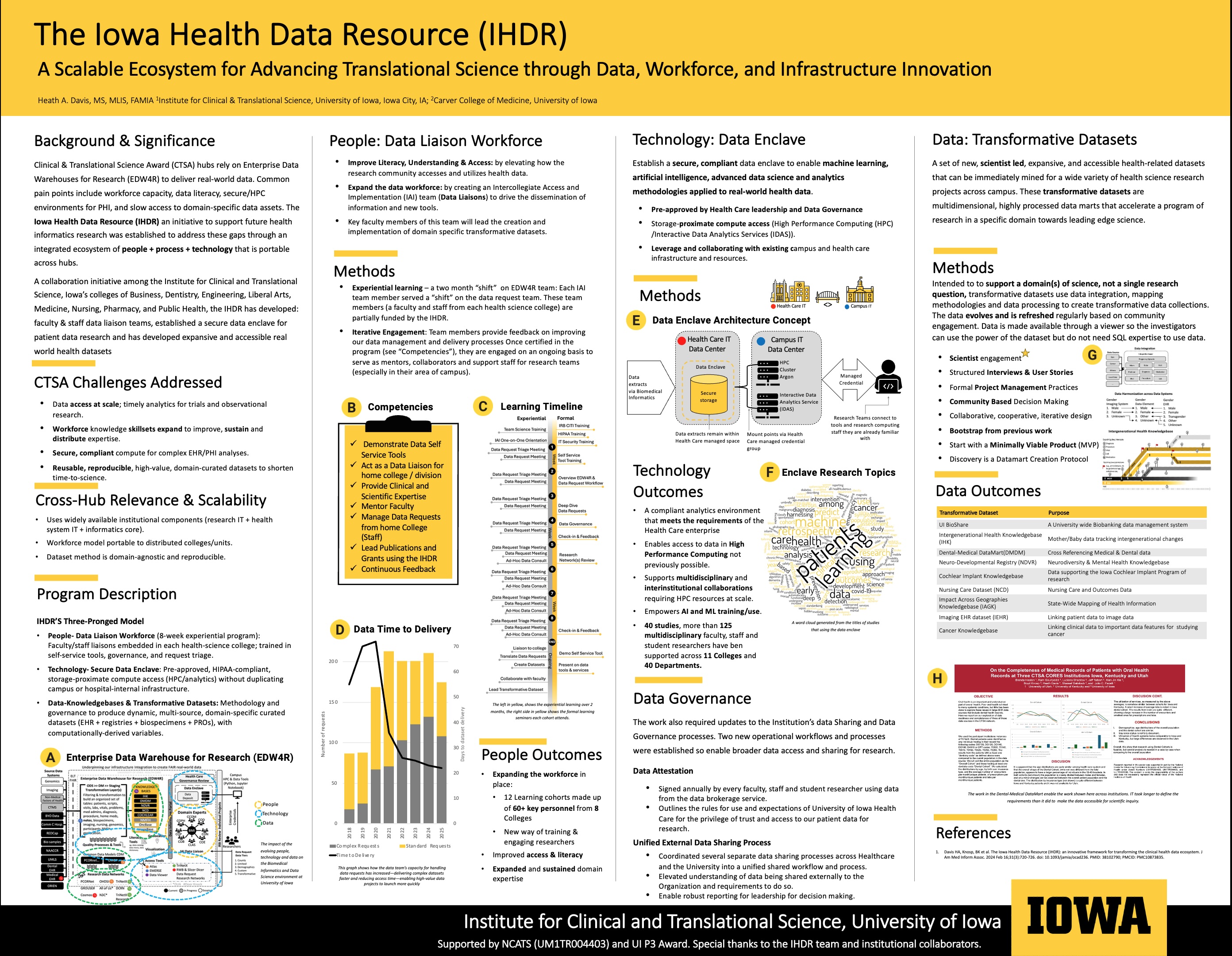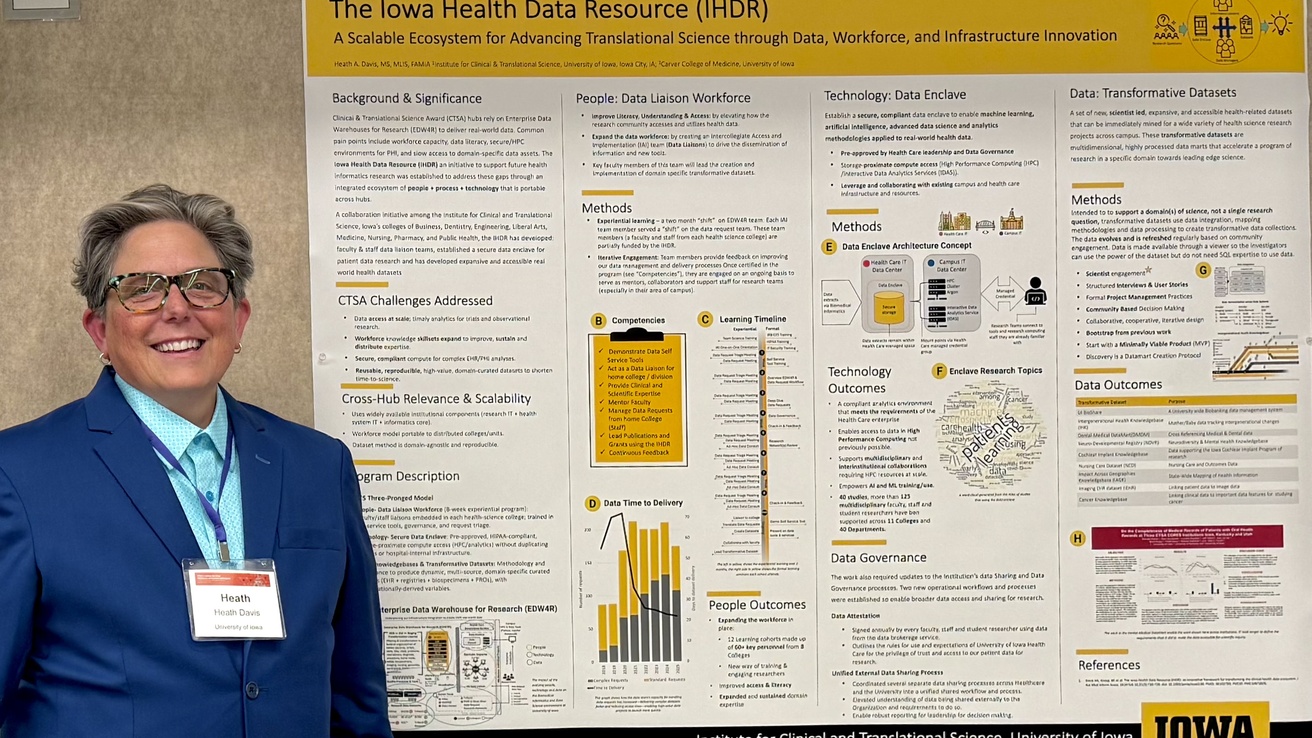Congratulations Heath!
In October of 2025, Heath Davis presented at the Annual Clinical and Translational Science Award Meeting. It was there that they were awarded Best Poster in Biomedical Informatics for their project on the "Iowa Health Data Resource: A Scalable Ecosystem for Advancing Translational science through Data, Workforce, and Infrastructure Innovation."
What is this about?
This poster describes a major initiative at the University of Iowa called the Iowa Health Data Resource (IHDR). It’s designed to make health data easier to access and use for research, while also training people and building the technology needed to support this work.

Why is it important?
- Creating a secure data environment for working with sensitive patient data.
- Training a specialized workforce to help researchers access and understand data.
- Building powerful datasets that can be used for many types of health research.
How does it work?
- People – Faculty and staff are trained as “Data Liaisons” to help others use health data effectively.
- Technology – A secure, high-performance computing system allows researchers to analyze data safely and efficiently.
- Data – Special datasets are created that combine different types of health information (like medical records, surveys, and lab results) to support cutting-edge research.
What has it achieved?
- Supported 40 studies involving over 125 researchers from 11 colleges in High Performance Computing (HPC) and Interactive Data Analytics Services (IDAS)
- Created 7 transformative datasets, including ones focused on moms and babies, nursing care, mental health, and dental health.
- Trained 60+ faculty and staff across 8 colleges through a hands-on learning program.
- Improved how quickly researchers can get the data they need—cutting delivery time from 70 days to 22 days over several years.

Why does it matter to you?
If you’re a patient, this work helps researchers study health problems more effectively, which can lead to better treatments and care. If you’re a researcher, IHDR makes it easier to get high-quality data and collaborate across disciplines.